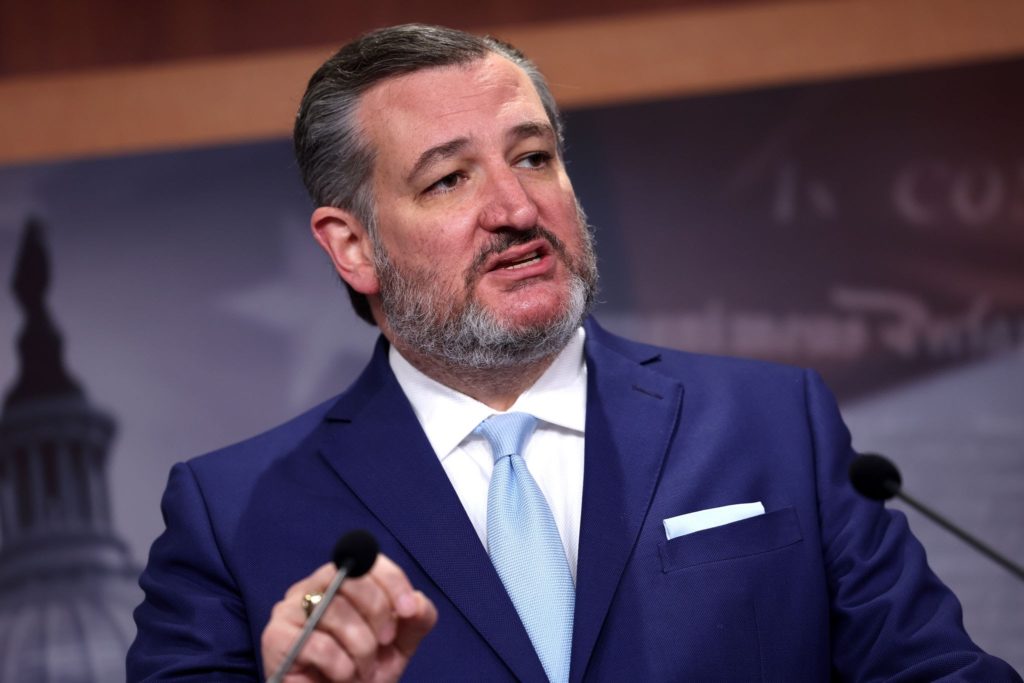
WASHINGTON, DC - MAY 03: U.S. Sen. Ted Cruz (R-TX) speaks on Title 42 immigration policy on May 03, 2023 in Washington, DC. A group of Republican Senators spoke out against the expiration of Title 42 saying it would be detrimental for southern states along the U.S.-Mexico border. (Photo by Kevin Dietsch/Getty Images)
Once upon a time, in the world of international politics, a significant event took place that caught the attention of global leaders and citizens alike. In the vast and contested region of Western Sahara, a momentous decision was made that would reverberate across diplomatic circles and stir a mix of emotions.
In a remote corner of the world, Senator Ted Cruz, a prominent figure in American politics, took to social media to express his support for Israel’s recognition of Morocco’s sovereignty over Western Sahara. The announcement came as a surprise to many, as the long-standing conflict over the region’s status had been a contentious issue for decades.
News of Senator Cruz’s public support spread like wildfire, igniting debates and discussions in various corners of the world. Many praised his stance, hailing it as a diplomatic milestone that could potentially pave the way for stability and peace in the region. Others, however, voiced their concerns, highlighting the complexity of the Western Sahara dispute and its implications for international law and the rights of the Sahrawi people.
As the story unfolded, the global community watched with bated breath, anticipating how other nations and leaders would respond to this unexpected development. The recognition by Israel signaled a shift in the geopolitical dynamics of the region, leaving many wondering about the broader implications for Middle Eastern affairs and the delicate balance of power.
Behind the scenes, diplomats and foreign affairs experts scrambled to analyze the implications of this endorsement. Regional powers weighed their options and carefully calculated their next moves, while the United Nations and other international organizations closely monitored the situation, eager to see how it would unfold.
Meanwhile, in Western Sahara itself, the Sahrawi people, who have long sought self-determination and sovereignty, watched with a mix of hope and trepidation. Their struggle for recognition and autonomy had been a central theme in their lives for generations, and they knew that this endorsement brought both opportunities and challenges.
As the story continued to captivate the world, journalists and analysts flocked to interview key stakeholders and experts in an effort to understand the motivations and ramifications of the events. It became apparent that this development was not an isolated incident but part of a larger tapestry of geopolitical interests and alliances.
The international community’s response to the recognition varied greatly. Some nations reiterated their support for Morocco’s position, while others expressed caution and called for a peaceful resolution through dialogue and negotiations. The United Nations reiterated its commitment to finding a just, lasting, and mutually acceptable solution to the Western Sahara dispute in accordance with international law.
Amid the diplomatic flurry, one thing became clear: the recognition by Israel had sparked a new chapter in the longstanding Western Sahara conflict. It had put the region back in the global spotlight and reignited discussions about self-determination, sovereignty, and the rights of indigenous peoples.
As the story reached its climax, the world awaited the next chapters with anticipation and concern. The decisions made in the wake of this endorsement would undoubtedly shape the future of Western Sahara and have ripple effects on regional and global politics.
And so, the tale of Western Sahara, Senator Ted Cruz’s support, and Israel’s recognition of Morocco’s sovereignty remained an open book, with chapters yet to be written and destinies yet to unfold. The world watched on, hoping for a resolution that would bring peace and prosperity to a land that had long been at the center of political intrigue and struggle.




